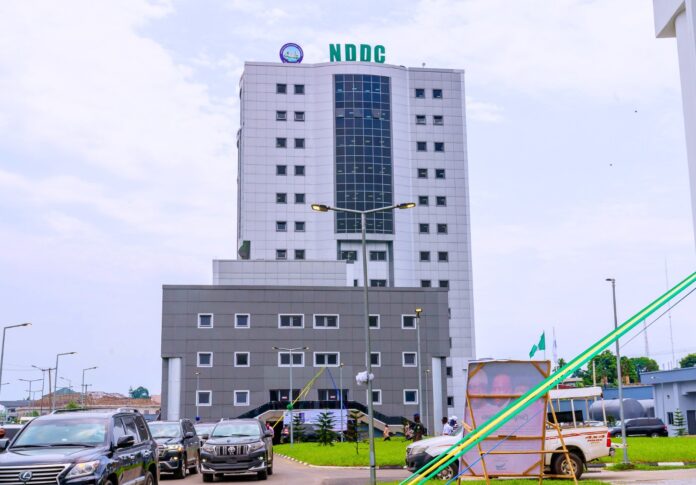The Independent Corrupt Practices and Other Related Offences Commission (ICPC) has issued a stern warning to employees of the Niger Delta Development Commission (NDDC) to steer clear of corrupt activities.
Mrs. Ekere Usiere, ICPC’s Anti-Corruption Commissioner for Rivers and Bayelsa states, delivered the caution during a quarterly sensitisation workshop for NDDC staff in Port Harcourt. Her remarks were contained in a statement signed by the NDDC’s Director of Corporate Affairs, Mrs. Seledi Thompson-Wakama.
Usiere underscored the vital role the NDDC plays in advancing the Niger Delta’s growth, stressing that the commission must regularly hold such enlightenment sessions to reinforce integrity among its workforce.
“NDDC staff must distance themselves from corruption, as anybody caught will be prosecuted in accordance with the law,” she warned.
She explained that the continuous organisation of anti-corruption workshops would help staff recognise the damage graft inflicts on development and equip them with preventive measures.
“This workshop themed, ‘Infractions/Offences in Anti-Graft Laws; Preventive Measures,’ serves as an antidote to corrupt practices,” she added.
Dr. Evans Peters, Head of ICPC’s Legal Department in Rivers State, also addressed the participants, urging the NDDC to strengthen its Anti-Corruption and Transparency Unit for greater efficiency. He recommended that the commission adopt systems for the regular review of processes vulnerable to graft and create a comprehensive code of ethics with clear guidelines for corruption prevention.
According to Peters, acts such as inflating contracts, awarding jobs without budgetary provision, or obstructing investigations are offences under the law.
“In addition, any staff who make false statements and returns, fail to report bribery activities, and conspire to provide false information, or engage in similar acts will be prosecuted. Every public servant should take the ICPC Act as a Bible and internalise its tenets, as ICPC frowns heavily on gratification,” he said.
Peters further noted that any asset or income derived from unlawful means could be confiscated by the government, and offenders would still face prosecution.
“Anyone caught in corrupt practices could be sent to jail. The law does not condone ignorance,” he cautioned.
In his remarks, the NDDC Managing Director, Dr. Samuel Ogbuku, reaffirmed the commission’s commitment to rooting out corruption and promoting transparency in its operations. Represented by Dr. James Fole, NDDC’s Director III of Administration and Human Resources, Ogbuku said the workshop was part of broader measures to improve service delivery.
“We are passionate about service delivery; hence, we organised this workshop to educate our staff on the need to avoid corrupt acts. We want our staff to work with diligence and uprightness while carrying out their duties,” he said.
Ogbuku assured that the NDDC Board and Management would remain steadfast in embedding ethics and values within the organisation’s culture.



